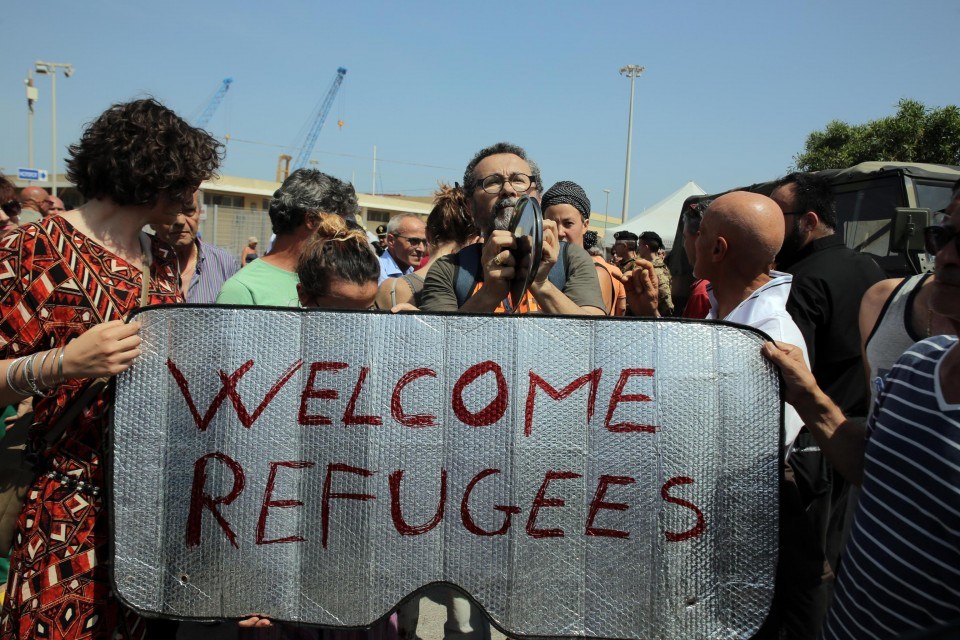Matteo Renzi was the prime minister of Italy from 2014 to 2016.
FLORENCE, Italy — In recent years, Europe has made many mistakes in its approach to immigration. It has lost interest in Africa, allowed the tactical reasoning of internal politics to win out and has lacked strategic vision. In recent years, Italy has often acted alone, “saving Europe’s honor in the Mediterranean,” as European Commission President Jean-Claude Juncker declared last year.
I have always said that faced with a person who is about to drown, our first thought must be to save them and only afterward to think of the effect on public opinion. Centuries of civilization have taught us that human life is worth more than a vote. You can lose an election, but you shouldn’t lose your human dignity.
Today, on World Refugee Day, with populists in power in Italy, I have not changed my opinion. Their message offers instant satisfaction to the guttural instincts of a nation: “No more landings on Italian shore!” … “Stop immigration!” … “Put Italians first!”
These slogans win favor on Facebook, but millions of likes cannot compare to the value of a human life. They may contribute to blocking a ship from docking in a port or taking it hostage in the middle of the sea, as happened last week. But they will not stop the landings from continuing. People fleeing war and hunger don’t have time to follow this or that populist pronouncement on Twitter. We must focus on fighting human traffickers — the modern slavers — not nongovernment organizations and charities.
Europe must rouse itself from slumber. Its leaders must make the right choices, choices put off for far too long. Europe must invest in Africa, where lately China has done a great deal more than the old continent has. To handle the migration flows, it is necessary to cut European funding to member states — such as some in Eastern Europe — that do not welcome migrants: solidarity that characterizes European finances must be matched with solidarity in our welcome.
In November 2015, the European summit held at Valletta in Malta came up with a workable strategy to respond to immigration. But the egoism of the individual states meant this came to nothing. We must change Europe’s landing rules, which continue to be based on the old, now obsolete 2003 “Dublin regulation,” which states that the country where asylum seekers first arrive is the country responsible for registering their applications. Instead, we must declare that the issue of immigration cannot be left to a single member state.
It is plain to see that there is tough work to be done: culturally, above all, but also politically, in the months between now and the 2019 European Parliament elections. The populists want to destroy Europe; our role must be to change it. The populists want to halt the flow of immigrants; we must manage it. The populists bet on rabble-rousing; we bet on meaningful politics.
In a globalized world, there is no alternative to an open society. Everyone has his or her own identity, values and history. We occupy the same planet at the same moment in time. Where there is strength, where roots have been laid deep, there is no need to fear dialogue or openness.
When we had the honor to run our country, we showed humanity, without ever sacrificing security. Crime levels waned. Great events such as the Jubilee and the International Expo ran smoothly and safely. Our country has been spared the tragedy of terrorist attacks, thanks to the splendid work of the men and women who watch over our safety. But the issue of immigration is just one symbolic move in a game of even broader and greater consequence.
Without effective immigration systems, does Europe still have a future? Or is it a fine idea whose colors have faded over time? This, above all, is the challenge we face.
Over the coming months, Italy’s politicians who live off slogans will be called to account. The values that bind people together are stronger than any trend, and Italy will soon be back to being Italy, seen globally as a bulwark of civilization.
This was produced by The WorldPost, a partnership of the Berggruen Institute and The Washington Post.





